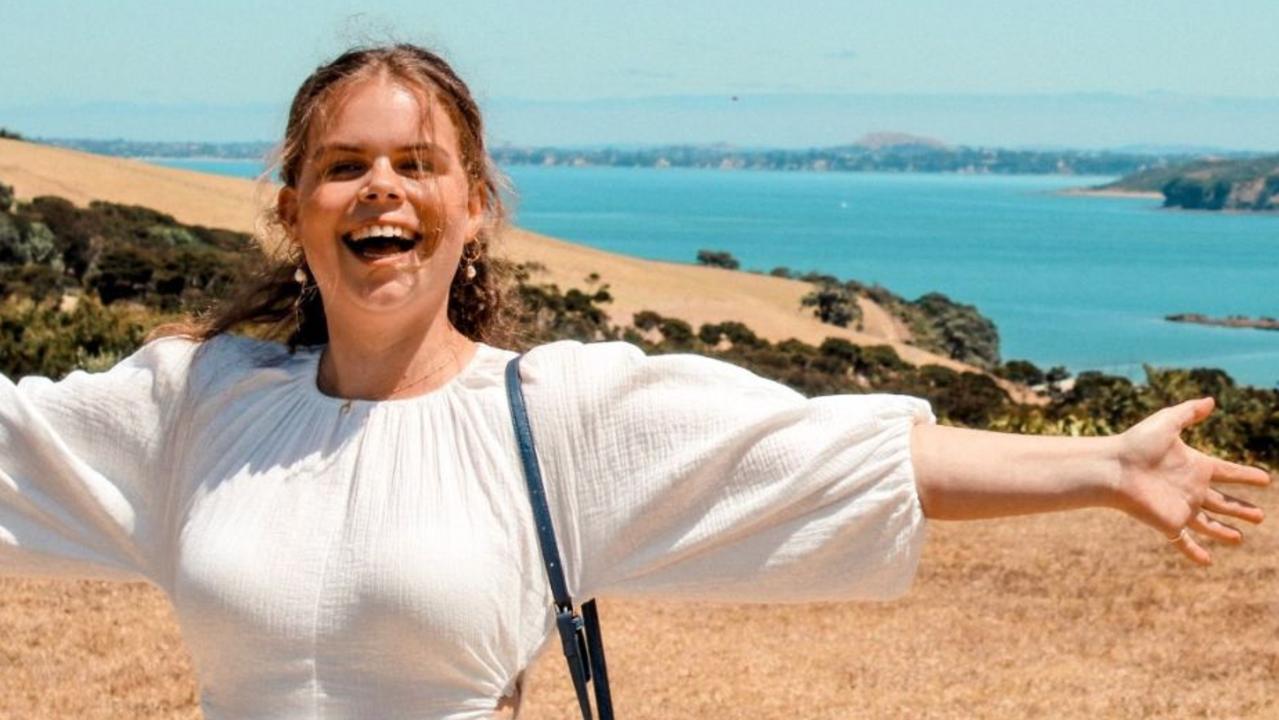Book extract: Farewell to the Father by Tim Elliot
TOWARDS the end of his father’s first suicide attempt, Tim Elliot’s dad said the strangest thing and it dawned on him, something wasn’t right.
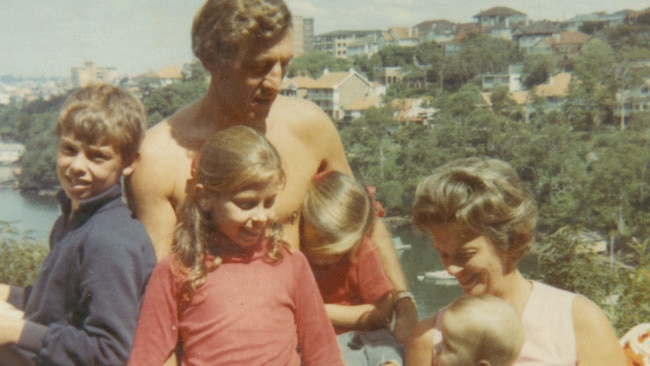
Lifestyle
Don't miss out on the headlines from Lifestyle. Followed categories will be added to My News.
TOWARDS the end of his first serious suicide attempt, my father said the strangest thing to me.
It was 1977, late one night in autumn, still and chilly. I was seven, or perhaps eight years old; Dad would have been about forty-eight, though he looked one hundred and forty-eight, sitting slumped at the kitchen table in his favourite chocolate-brown dressing-gown and the giant red moccasins we’d given him for Father’s Day.
He was propped against the wall, mangy with stubble, weeping listlessly and drooling.
“How many have you taken, Max?” Mum asked. No answer.
“Max, how many have you taken?”
“Enough,” he said. “Enough to do it. I’ll be dead soon, you’ll see. I’ll be dead, and you’ll all be rid of me.”
The empty pill canisters were lined up on the kitchen counter — Rohypnol, Mogadon, Valium. Mum had already called an ambulance; my older siblings, Rob and Gina, were waiting for it by the front door.
Mum had woken my sister Camilla and me and brought us down here to see Dad for what might be the last time. He certainly had that “last time” look. His face was purple and his nose streamed snot; a bubbly white froth gummed up his lips.
I dropped to my knees and threw my arms around his neck. I kissed his hot wet face, his bristles prickling my lips. He already felt dead, like something washed up on a beach, sodden and heavy. I kissed him and I told him I loved him, and I said to myself, Please please Daddy please don’t die please don’t die please.
But this was it. I knew it. He was going to die, here in this kitchen, right in front of us. I searched for something to say, something more than “I love you”, but I could barely talk anyway; my throat was thick with crying. So I just hung on to him, hung on and hung on, even as he slid further down the wall, leaning half on me and half on the doorjamb.
And then he said it.
“Always be a man.”
I looked at him; his eyes like slits, his slobbery mouth.
“What?”
“Whatever happens,” he said, struggling mightily, “always be a man.”
I had no idea what he meant. Always be a man. Did I have a choice? I was a boy — didn’t that mean I would naturally grow up to be a man?
Or was he talking about a specific type of man, perhaps? Someone like him, who was big and tall and had played rugby for Australia. A doctor who worked eighty hours a week and shouted a lot. Who drank a bottle of gin every night and took an overdose of Rohypnol.
I didn’t get it. I didn’t get it, and I desperately needed Dad to help me get it before he died, otherwise I’d be wondering forever.
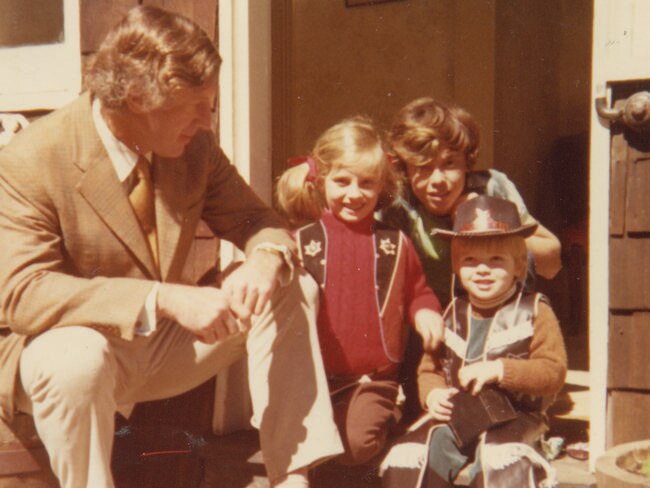
But Dad was now beyond speech: he just sobbed and dribbled, and as I clung to him, pressing my little pyjamaed body into his, I could sense his hot wet breath slowing down.
Then, suddenly, there were other people in the kitchen, ambulance officers in blue shirts and black pants. One of them had an official-looking moustache; the other one had a stethoscope around his neck and a small torch in his top pocket that he whipped out and clicked on and shone in Dad’s eyes. They certainly looked like they knew what they were doing.
I thought: Maybe he won’t die after all. And then they were carrying Dad away.
I stood at the bottom of the steps as the ambulance drove away, certain it was the last time I would see him.
It wasn’t, of course. The last time I saw Dad, he was, funnily enough, in the same spot, slumped over the kitchen table. But that was many years later, and there was no-one to rescue him. No-one, that is, but my brother and me — and we were no help at all.
***
Dad’s terminal deterioration, his dive-bomb into oblivion, began when he was about forty, around the time I came along. There was, therefore, no time I can remember him being “normal”. But I must have been about seven or eight when it first dawned on me, conclusively, like a flicked switch, that something wasn’t right.
It was a Sunday night, and we were all sitting around watching TV, laughing at an episode of M*A*S*H, when I glanced across at Dad and noticed he wasn’t laughing. He wasn’t even smiling. Rather, he was wincing and squinting and grinding his teeth; he looked to be in some kind of low-level agony, as if he was watching another show on another channel, a show that was not the slightest bit funny.
This troubled me. I wanted Dad to enjoy what we enjoyed; I wanted him to be happy. And so, in the next ad break, when Mum got up and went into kitchen with some dirty dinner plates, I followed her. When we got to the sink, I said: “Why isn’t Daddy laughing? M*A*S*H is funny and Dad should be laughing, but he isn’t.”
Mum was packing the dishwasher, getting gravy slime in the webbing between her fingers, which didn’t bother her in the slightest (she had a high tolerance for yuckiness). When all the plates were in she grabbed a dishcloth and wiped her hands. Then she turned to me and said: “I don’t know, sweet pot.” Sweet pot was one of her names for me.
“Maybe he’s just a little tired. Why don’t you go back in and give him a big hug.”
So I returned to the TV room and I wriggled onto the couch next to Dad, and I gave him a hug. I wanted to ask him why he wasn’t laughing but I just sat there pressed up next to him and his hot squishy food-gurgling tummy and I laughed when the others laughed and I pretended that I hadn’t noticed anything and that everything was normal.
***
Dad was a big guy; over six feet tall and built like a minor mountain range. He played rugby union for Australia in the 1950s, something I was, and remain, crazily proud of. He was also a doctor, and a very good one. He had worked in London, and spent the last 15 years of his life as the head of the chest section at Royal North Shore Hospital, where the nurses and the registrars called him “Mad Max”.
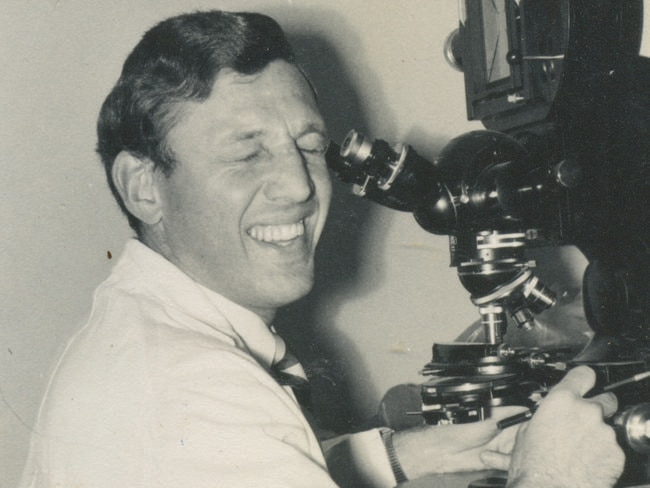
Even now, in the course of my job, I still run across people who remember him. “Oh, you’re Max Elliott’s son!” they say. “What a wonderful man. Such a character.” That’s one word for it.
Dad was a romantic: he loved poetry, sunsets; Beethoven’s Moonlight Sonata was his favourite piece of music. But when it came to work he was relentless, a haircloth penitent, flogging himself to a bleeding pulp. Mum called him a “workaholic”, which I confused with “alcoholic”.
As a boy, I pictured Dad sitting at his desk, swigging from a bottle. Who knows, maybe he did? He was certainly gone a long time, leaving for work before I got up and returning after I’d gone to bed.
Then, because he always had More Work To Do, he would set up office at the kitchen table, dictating his excruciatingly detailed patient histories and examining X-rays, wobbling them up to the wall light and squinting at them through his big, square, gold-framed glasses. This he would do until eleven or twelve, or even one or two in the morning.
Sometimes I would wake and wander into the kitchen and give him a hug. Or not, depending on his mood.
Then, much later, I would hear him downstairs, roaring like the wolf in The Three Little Pigs, about to blow our house down. Camilla and I would creep to the top of the stairs and huddle there, holding our knees, listening as cupboards were smashed and pots hurled, and hearing Mum’s watery voice interjecting, begging him to please, please, please, darling, please calm down and come to bed.
Exactly what Dad was carrying on about I didn’t know. It could have been anything, everything, nothing.
What struck me, lying in the dark, sweating in my sheets, was not what he said but the way he said it; the urgency, the desperation. It was the sound of a man abandoned at the bottom of a well, or left to rot in solitary confinement; the last pleas of an astronaut pushed from the spaceship, kicking and screaming, to float forever in outer darkness. It was his tone then that most disturbed me.
You are not alone, I wanted to say. We are all here. I am here. I can help you! I will save you!
At other times he would stand over the toilet, late at night, naked and hysterical, demanding that we come and inspect the blood in the bowl — a product, he said, of the cirrhosis of the liver that was, even as he spoke, in the process of killing him. “COME HERE AND LOOK AT THIS BLOOD, ALL OF YOU! I AM DYING! I WILL BE DEAD IN A YEAR!”
Then, come the morning, all would be miraculously, inexplicably calm. Mum was preparing breakfast: a boiled egg, toast with marmalade. Dad had gone to work. It was as if nothing had happened.
I stood by Mum’s hip at the kitchen sink and asked why Dad had been so upset last night. I always said “upset”, never “angry” or “furious” or “stark raving mad”, because if he was just “upset”, all was not lost. I might still be able to help. “Anger” was an adult emotion, as was “mad”, whereas “upset” was within my range. I could deal with that.
But nothing Mum said ever sounded like an answer.
I used to love the comics. I would read them every morning, after Dad had left for work. One of my favourites was Hägar the Horrible. Hägar was a Viking and a fearsome warrior. He had a beard and a big belly and a horned helmet. When he wasn’t off sacking monasteries, Hägar was at home, drinking cups of mead and eating roast meat, and leaving a trail of mess.
Hägar was scary sometimes; he had a huge appetite, and drank and ate a lot. He was also, in his own way, out of his depth and at odds with the world. But he was loveable. Sometimes, if there was a particularly good Hägar comic, we would cut it out and put it on the fridge. Someone would scribble Dad on it, with an arrow pointing to Hägar.
Our Hägar had some serious problems. But no matter how worrying these were, we never discussed them with outsiders. That was “dirty laundry”, Mum would say, and one shouldn’t go around airing it.
Even now, vestiges of such propriety still exist: my dad’s friends will be horrified to learn I’ve written this book — a certain part of me is horrified — but the stigma surrounding mental illness has largely disappeared. It’s okay now to say you’re a nut case, that you’re OCD or ADHD. Every second person you read about is bipolar.
But when I was a kid in the 1970s, such candour was unthinkable. It would have been like walking out of the house in your underwear. And though in many ways Mum and Dad were quite progressive — when we were teenagers they allowed us to drink, to smoke pot and to have our girlfriends and boyfriends sleep over — mental illness was another thing altogether.
To be as successful as Dad, to have that house, that career, that family, and still be so unhappy was like some unpardonable sin.
And so we didn’t talk about it. Not to friends or outsiders, anyway. I think Mum confided occasionally in her sister, my Aunt Joanie, but Dad’s ‘unhappiness’ was for the most part our big secret.
After cleaning up from breakfast and preparing for dinner, Mum would have a coffee, always instant: Nescafé Blend 43 or International Roast. Real coffee would have been indulgent; it would have been “going to too much trouble”. She would put out the washing, pushing that squeaky-wheeled clothes basket out to the line. Or she would work in the back room, what we called “the office”, taking care of Dad’s books.
Later, perhaps at 10 or 11, her “girlfriends” would arrive for a few hands of bridge, all the elegant ladies, put together like expensive confectionery, with papery cheeks and puff-pastry hairdos.
They fluffed my hair and said, “Goodness me, haven’t you grown up?” I would stand beside them as they played, staring, and thinking as I stared. These women thought I couldn’t see their wrinkles, they thought I couldn’t see the cracks, that they were invisible. But I could see right in there, all the way, deep down, past all the powder and the face paint.
What were they covering up? I wondered. What secrets did they have to hide? Did they have husbands like Dad? Or were their homes perfectly perfect, like doll’s houses?
These women were Mum’s closest friends, but she never breathed a word to any of them. She just kept playing. And for lunch she served salmon sandwiches, sliced into neat little fingers.
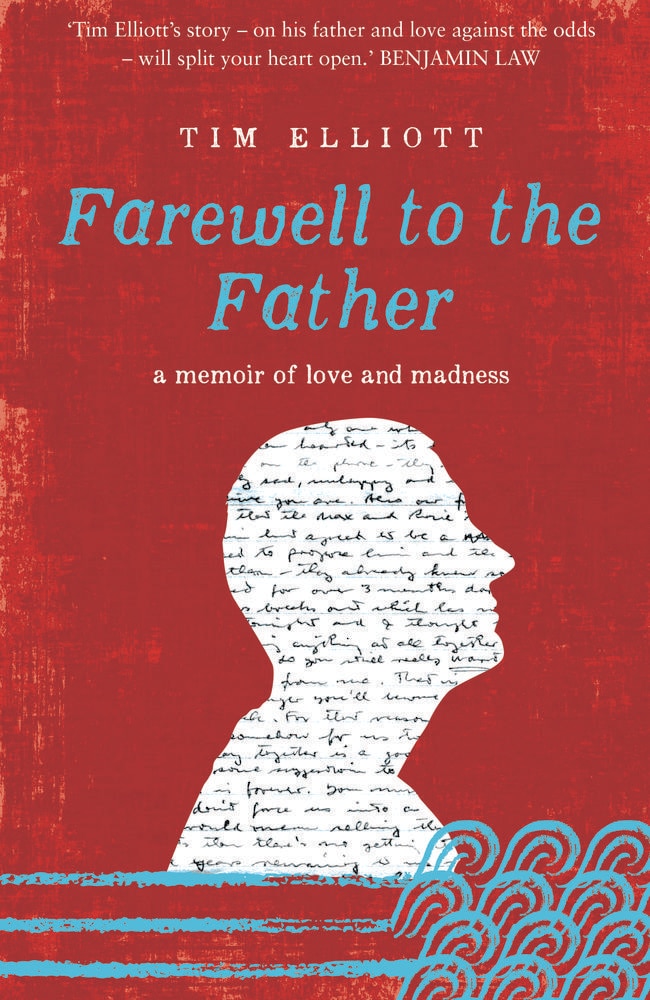
This is an extract from Farewell to the Father by Tim Elliot, published by Picador, RRP $39.99.
Follow Tim on Twitter @timelliottsmh
* If you or someone you know is in need of crisis or suicide prevention support, please call Lifeline on 13 11 14 or visit www.lifeline.org.au/gethelp
Originally published as Book extract: Farewell to the Father by Tim Elliot


